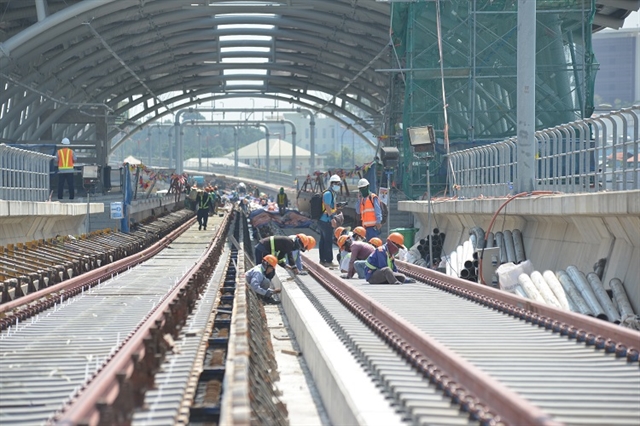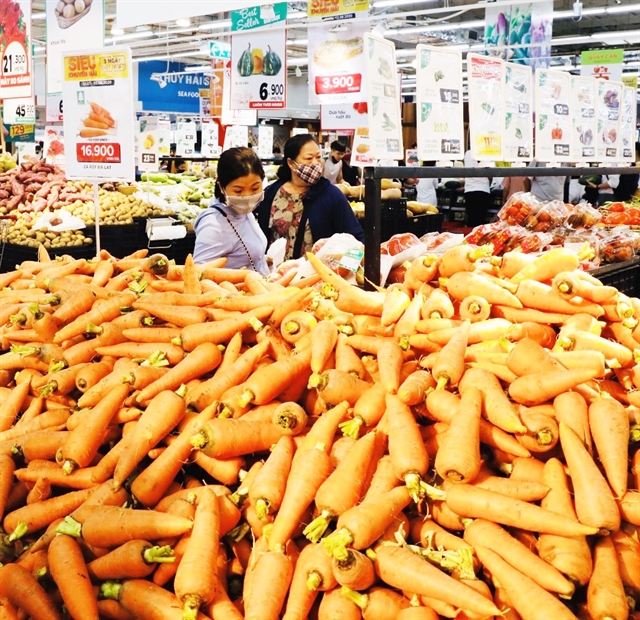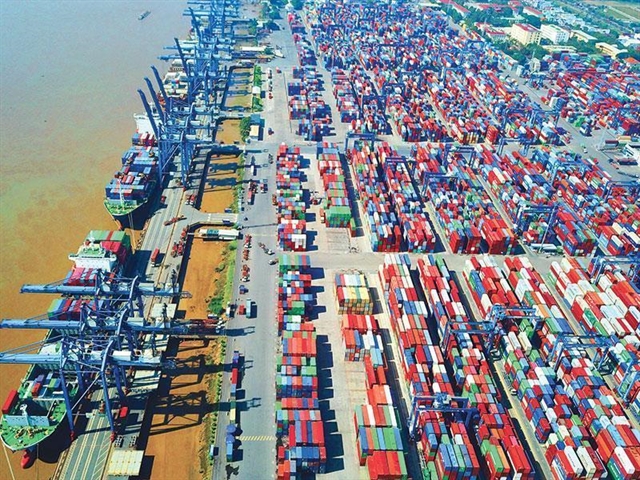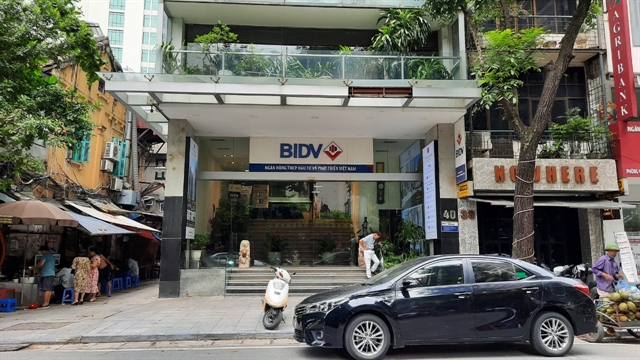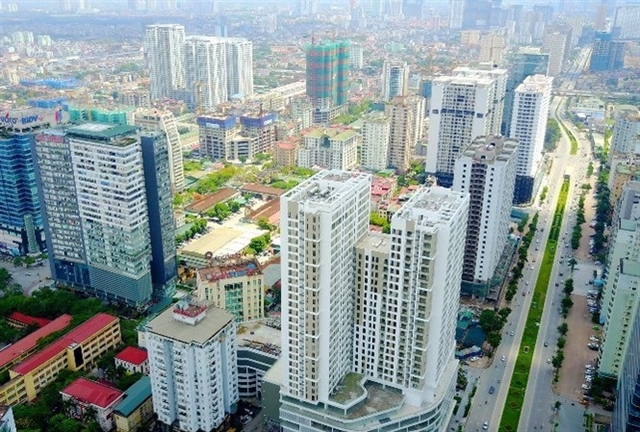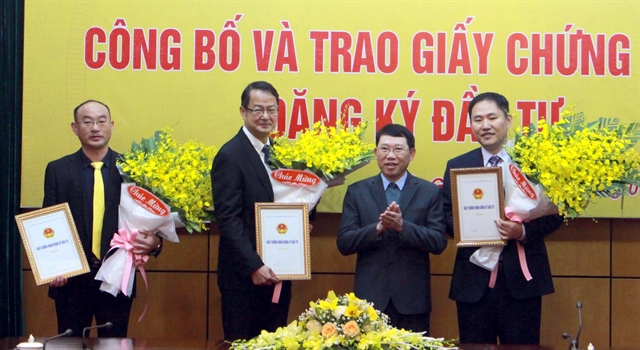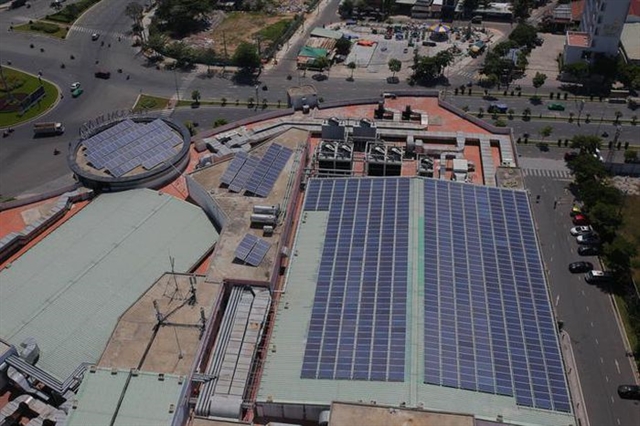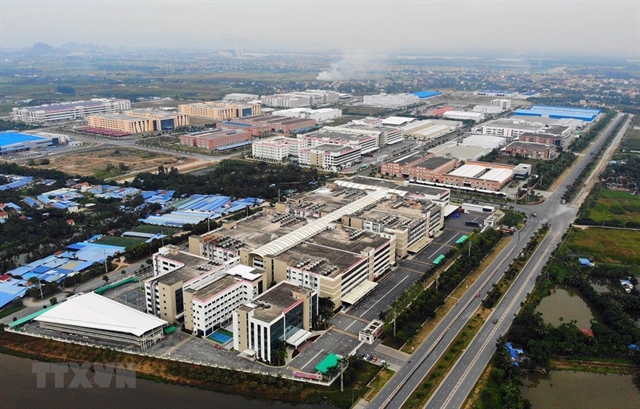
The COVID-19 pandemic greatly impacted on commercial activities in domestic and global markets last year, meaning Việt Nam needs solutions to support local businesses to develop the domestic market.
Minister of Industry and Trade Trần Tuấn Anh spoke to Vietnam News Agency about these issues
How has the domestic market developed in the context of the COVID-19 pandemic?
Việt Nam is controlling the pandemic effectively but it still has many hidden and unpredictable changes. In that situation, the Ministry of Industry and Trade has effectively exploited the domestic market with nearly 100 million people, adapting to the state of the "new normal" to develop the country's economy.
The ministry has launched programmes to stimulate domestic consumption, supporting the production and business of enterprises.
With the response of localities, commodity associations, businesses, and especially consumers, those programmes have created a lever to stimulate consumption and promote the growth of total retail sales of goods and services nationwide.
This is a positive result that helps enterprises step by step recover and boost production and business activities, contributing to the recovery of domestic economic development.
Việt Nam has become a bright spot in controlling the pandemic and rapidly recovering the economy in the context of COVID-19.
How has the industry and trade sector implemented Prime Minister Nguyễn Xuân Phúc's idea of bringing goods from rural areas to cities?
The industry and trade sector has been implementing this idea by developing commercial infrastructure to facilitate easier access to goods from rural areas to distribution systems nationwide.
The Ministry of Industry and Trade has carried out a plan on development and management for the market to compete with modern distribution channels and retain its important role in the domestic market, especially in rural areas.
In 2010, Việt Nam had about 8,500 markets, more than 500 supermarkets and nearly 100 trade centres. Those figures surged to 1,085 supermarkets and 240 trade centres while the number of markets remained stable by 2019. Thousands of modern convenience and specialised stores operating under as chains are growing quite rapidly in big cities. Thanks to the developed commercial infrastructure, goods have been transported quickly from the countryside to the city to reduce distribution intermediaries.
The ministry has also had a lot of policies and solutions to facilitate the distribution of agricultural products and support participants in the consumption channels of farming products.
The ministry has submitted to the Prime Minister for the approval of a project on renewing methods of trading agricultural products to create favourable conditions for the development of farmers' consumption channels of agricultural products.
With comprehensive and synchronous solutions, this project is expected to contribute to promoting the consumption of agricultural products on the domestic market with the application of traceability for agricultural products and multi-channel consumption. This will reduce risks for producers to increase the value of agricultural production.
To support enterprises, co-operatives and production households in localities, the ministry has worked with localities and businesses to organise conferences to connect supply and demand in some localities, especially places with speciality products, safe food and large-scale agricultural production.
These conferences have attracted thousands of delegates from provinces and cities nationwide and had many agreements and memorandums of understanding on trade co-operation signed among producers, farmers and distributors.
Also thanks to the connection between supply and demand, goods circulate smoothly, promoting the development of production. Consumers can use quality products at reasonable prices.
The ministry has also supported localities in expanding markets for agricultural products such as lychee of Bắc Giang Province, mango of An Giang Province and dragon fruit of Bình Thuận Province.
Meanwhile, many localities have built projects to strengthen supply chains of agricultural products and activities connecting supply and demand of goods.
The sector has opened points of sale to facilitate the consumption of agricultural products and the link between domestic production and consumption of goods.
In addition, the ministry has also been co-ordinating with distributors and businesses to implement many programmes to help develop trade activities in ethnic minority areas. So far, more than 400 tonnes of agricultural products have been sold, creating stable income for more than 500 households, mostly ethnic minorities.
It has built product consumption chains between supermarkets such as Big C and Saigon Co.op and cooperatives.
Amid the complex developments of COVID-19, what solutions will the Ministry of Industry and Trade have to support local businesses in 2021?
In the short term, the ministry will continue to support domestic trading and service enterprises to overcome difficulties, maintain business stability, and then gradually achieve high growth.
In the long term, the key solution is to seize opportunities from e-commerce activities. The ministry has launched a movement of consuming Vietnamese goods and agricultural products through an e-commerce site at 'Vietnamese Pavilion'.
The ministry works with the State Bank to have loans with preferential interest rates for businesses, co-operatives, business households and small traders in markets to encourage investment in e-commerce activities and multi-channel commercial activities.
In addition, it will implement programmes to stimulate domestic consumption and help businesses distribute essential goods. It will complete mechanisms and policies to create favourable conditions for businesses in investment to develop commercial infrastructure.
The ministry will also support businesses to consume agricultural products in the harvest season and to bring safe agricultural and aquatic products to the foreign distribution system in Việt Nam.
In addition, the ministry will carry out trade promotion programmes to support the enterprises, co-operatives and business households that face difficulties selling goods in the domestic market and for export.
Besides that, it will propose programmes to stockpile goods to stabilise the domestic market in localities, including loans with preferential interest rates that are provided to enterprises to reserve goods in the months before the Lunar New Year of 2021. — VNS
